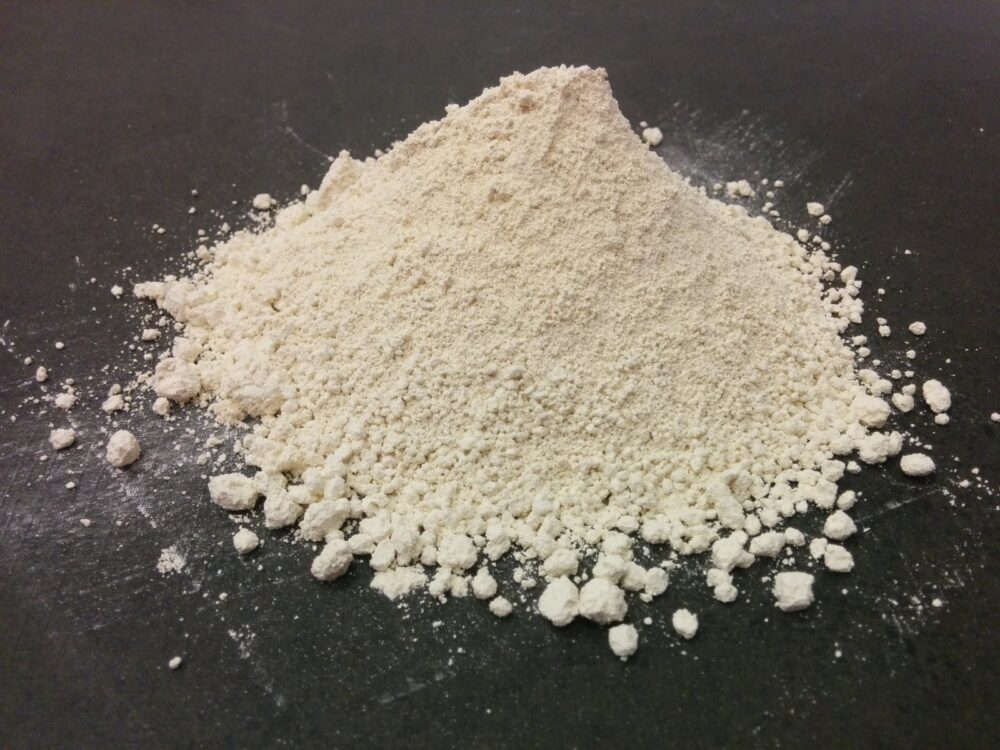Would you eat fruit flies? This Jewish company is betting you will
Flying SpArk is counting on moving past the ‘yuck factor’ to offer a sustainable, non-GMO, inexpensive protein alternative.
Published June 23, 2021
The “yuck factor” is the biggest hurdle facing Israeli food-tech startup Flying SpArk. The Ashdod-based company produces a protein and mineral rich powder from – wait for it – fruit fly larvae.
“In insect protein, you have all the good stuff without the bad stuff,” enthuses Eran Gronich, Flying SpArk’s CEO.
Flying SpArk’s larvae-derived powder is 70 percent protein with the rest containing important amino acids and minerals such as calcium, iron, zinc and magnesium. Unlike meat, creating protein powder from insects is pesticide- and antibiotic-free, low in fat, and takes substantially less water and almost no land to produce.
Flying SpArk farms its larvae vertically. “We can grow the equivalent of a cow, 300 to 400 kilograms of larvae a month, in one square meter,” Gronich tells ISRAEL21c.
Flying SpArk is part of a growing number of startups “farming” insects to heal the planet from environmental disaster and feed a growing number of hungry people – the planet’s population could top 9 billion by 2050 according to some estimates, a reality that will require 70% more food production.
Already today, the United Nations reports that one in nine people suffers from chronic undernourishment; 51 million of those are children under five.
“Insect-derived protein is a solution for everything. It’s healthy, sustainable and cheap to produce,” Gronich says.
Flying SpArk estimates that for every 1,000 tons of protein powder produced, 110 million square meters of freshwater, 50,000 hectares of land and 55,000 tons of greenhouse gas emissions is saved compared with meat production.

Which bugs to use?
Gronich, a serial Internet entrepreneur, assembled a team of foodies and entomologists –scientists specializing in the study of insects. The only thing to decide was which bugs to use.
“Other companies are using all kind of insects – grasshoppers, crickets, mealworms,” he notes. “As far as we know, we are the only ones using fruit fly larvae.”
Fruit flies, like all insects, lay eggs; the larva, which lives for just seven days, is the stage between the egg and the emergence of a baby fly, known as a “pupa.”
Larvae don’t hear, feel or see. There’s no parental relationship between a mother fly and the larvae. All it does is eat– with gusto.
In those seven days, the larva’s body mass increases 250 times – a major reason Flying SpArk chose to work with fruit flies. “It’s very efficient,” Gronich points out.
Flying SpArk processes the larvae, which are non-GMO, into a white powder. All parts of the larvae are used, meaning there’s nearly zero waste (not the case for other insect protein powders such as grasshoppers).
The resulting powder additive has hardly any smell or taste, making it easy to incorporate it into any kind of food product from a burger to a power shake. Other types of protein powders can have a strong scent which manufacturers have to mask, limiting their application.
Animal feed first
Don’t expect to be ingesting fruit fly-derived protein powder any time soon. The first use of the product – which Gronich expects to be available later in 2021 – will be for animal feed. FDA approval for humans won’t come until at least 2022.
Flying SpArk is now setting up a manufacturing plant in Thailand, where eating insects is not as much of a taboo.
“There are around two billion people eating insects in South Asia, Africa and South America,” Gronich says.
The company forged a partnership with seafood producer Thai Union, the largest canned tuna producer in the world, to develop a product dubbed NoTuna.
In the Western world, Flying SpArk will be a harder sell. Aside from the yuck factor, for observant Jews there’s the problem that fruit flies are not kosher. By contrast, Israeli food-tech startup Hargol is producing kosher grasshoppers for consumption.
What about vegans – will they embrace or eschew insect protein powder?
Gronich thinks there’s a chance that those vegans for whom not harming animals is their key ideological reason for adopting a plant-based diet could get on board. “Larvae is not the same as a cow. There’s no suffering as you see in a pig or chicken farm.”
Sustainable and cheap

Flying SpArk hopes to sell its fruit-fly powder for around $15,000 a ton. A liquid version, delivered as a clear oil, can be used in dietary supplements and even cosmetics.
The company started its life in 2015 branded as simply “Flying Ark,” a biblical reference to Noah replenishing a devastated earth. Ark turned into SpArk to hint that the company “can bring a solution to mankind through a healthy, sustainable and cheap source of protein,” Gronich says.
The company went through incubator programs including MassChallenge and the IKEA boot camp. In 2016, it joined The Kitchen food-tech hub set up by the Strauss Group in Israel in collaboration with the Israel Innovation Authority. Strauss owns some 25% of Flying SpArk’s shares. The Thai Union group invested in Flying SpArk in 2019.
In February 2021, Flying SpArk went public and raised $6 million on the Tel Aviv Stock Exchange. The Thailand production facility will be the main beneficiary of those funds.
Alternative protein
Hargol is Flying SpArk’s main competitor when it comes to insects, but about 300 Israeli food-tech companies are creating a variety of alternative proteins.
- InnovoPro and ChickP are developing neutral-taste meat alternatives based on chickpeas.
- Amai Proteins is developing protein-based sugar substitutes.
- Redefine Meat and SavorEat are working on 3D-printed vegan beef.
- More Foods is developing a yeast-based meat alternative.
- Yofix sells soy-free yogurt made from oats, legumes and seeds.
- Zero Egg’s plant-based egg alternative is available to food-service operators and manufacturers in the US, Europe and Israel.
- Kinoko Tech gets its vegan protein from mushrooms; Rilbite has developed a “minced plant” burger.
For more information, click here
















